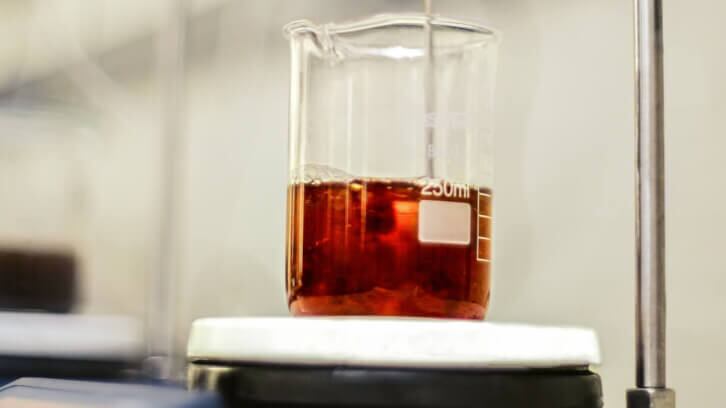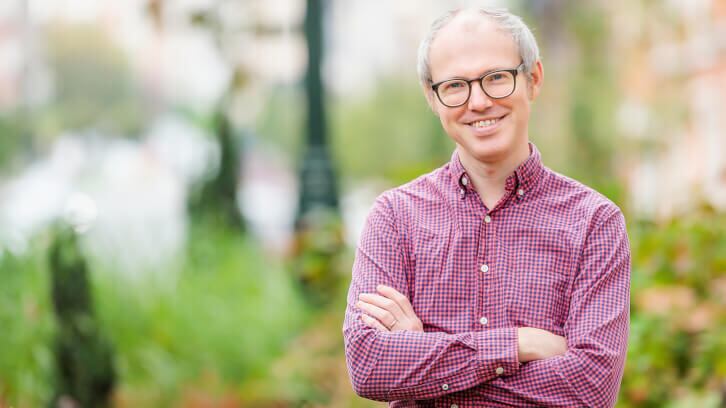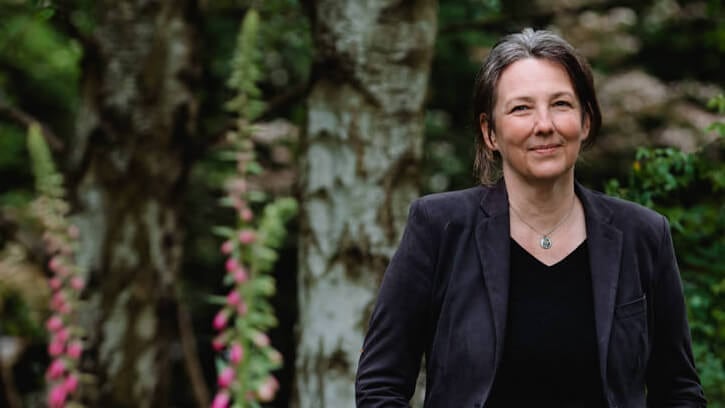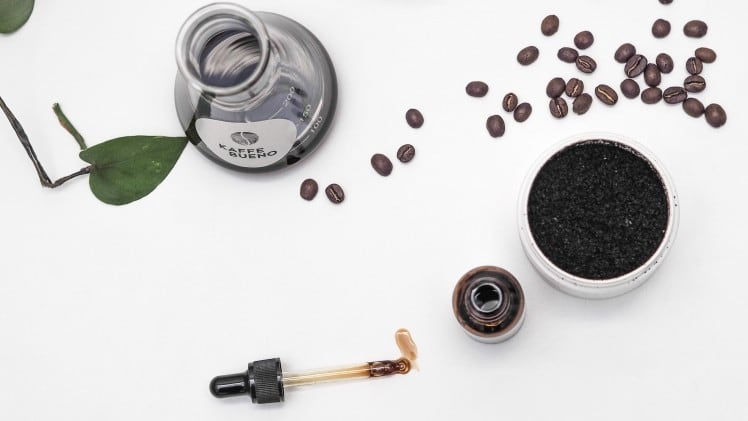CosmeticsDesign-Europe (CDE): You’ve just opened your new biorefinery in Copenhagen. Can you tell us more about this?
Alejandro Franco (AF): It’s where we breakdown coffee – all of its compounds. Then with those compounds, we make ingredients for personal care and other industries, too. This is the transition of our pilot lab to a commercial scale up. There we have different technologies going on, which we keep a trade secret. But it's all in green chemistry, biotechnology and nanotechnology.
We’ve had two ingredients on the market for the last couple of years, but this year we launched three more, which are basically from after the oil has been extracted and we’re left with the coffee grounds. We sell these in the food industry and in the cosmetics industry as an exfoliant.
Then we ‘double upcycle it’ by turning the by-product of the oil production into a product too. We also use it to continue making new ingredients.
So basically, we start with the coffee grounds, then we extract the oil, then from the oil we can produce a range of bio-based surfactants, which are a natural alternative to SLS.
But then after the oil is extracted, we're left with the grounds here up top. That's what we call ‘a fibre’. But then it's also the raw material for farther downstream processes and that yields more products or more ingredients.
We use a biopolymer fraction to produce a myriad of active ingredients for BB creams and scalp and hair care. But then after that there is a by-product of that extraction or of that process and we continue to use that instead of throwing it away. That is what is going to happen in this factory at a large scale.
CDE: How and why did you start this business?
AJ: Myself and my two cofounders – Juan Medina and Camilo Fernandez – are from Columbia originally and we studied international business in London. While living there, we started realising that there was a lot of coffee waste and wondered what happened to that waste and then learned that it and in that ends up in landfills where it decomposes and generates methane, which is bad for the environment.
So, then we started thinking about our childhood in Colombia and how our grandmothers would use coffee grounds on a wound as a kid. And although it sounds pretty weird, it really helped reduce inflammation! They would also use it to dye their hair. So we grew up seeing coffee used for many things instead of being thrown away.
We asked ourselves the question ‘what is inside coffee that helps reduce inflammation on a wound?’ and then that opened a whole world. We started reading a lot about coffee in general. What is it made of? What is there after you make a cup of coffee? And I mean, usually people think of caffeine when they think of coffee, but this is less than 1% of the coffee. The rest is protein, sugars, lipids, antioxidants, essential fatty acids – a lot of health-promoting compounds. We found more than 100 clinical studies proving the association of these compounds. To treat and prevent neurological diseases, skin conditions, cardiovascular conditions, even Alzheimer's, and and through that process we educated ourselves in biochemistry, biotechnology, and a lot of different things, but also in that process we realised there were many potential avenues to go here.
And what we noticed across all of these industries was that there is a movement going, on even back then, almost 10 years ago. That they all wanted to transition to natural, but there were barriers. To start, natural ingredients are usually more expensive, or there is a batch-to-batch quality on reliability or they underperform versus synthetics and petrochemicals. But then we thought, OK, if all of the ingredients or all the products that we use in our daily lives are full of rubbish from petrochemicals and can we create a way to use coffee and technology in order to phase out these kinds of ingredients without sacrificing on performance, quality or margins. And that's what has been developing over the years.
CDE: There is lots of talk about ‘greenwashing’ lately in the industry. Is there any potential ‘downside’ to recycling coffee in this way in terms of the environment?
We did about 5 LCAs (life-cycle assessments) in each of our main compounds and we confirmed that our way of doing things is working.
We are not a company that is 200 years old and trying to adapt to this new world. We are a company that was born because we want to change the way things are.
You cannot improve what you cannot measure, so we measured everything. We did a LCA looking at every single part of the supply chain and we realised that our oil is much more sustainable than argan oil and palm oil in terms of emissions created, the water usage, the land use, everything.
It is important to us, of course, to avert the emissions of allowing coffee to go to a landfill, but even more importantly for us is to help the companies that make the finished products reduce their scope three emissions by replacing other ingredients with these.
CDE: Your ingredients are used in products from big brands such as Nivea and The Body Shop. What kind of cosmetics products are these ingredients featured in?
AJ: These companies are using the KAFFOIL. I mean, they could have used any other virgin vegetable oil, but they decided to use that one. They have used it in many different things, like face creams, body wash, shampoo, face masks, face oil and mascara.
CDE: You're planning to open more biorefineries in other parts of the world too. Where else are you thinking of opening these?
So basically, this is our goal long term. And today, we're building the world's first coffee biorefinery in Copenhagen, which has a capacity of about 500 to 1,500 tonnes annually. So, this will be the pilot plant. And then the next step would be to make another one of 15,000 tonnes to 30,000 tonnes in the next couple of years. Before 2030, for sure. But we are still looking at locations. We are currently looking at two within Europe and one in the USA.
CDE: And why did you choose Copenhagen for the first one?
AJ: Many different reasons. It's one of the highest-consuming coffee countries per capita. It's a biotech hub. And then the recycling infrastructure and culture in general is quite strong. People really care here.
CDE: How long have you been working on the biorefinery opening?
AJ: Anybody who has ever met me or the other two founders in the past seven years have heard the word ‘biorefinery’. So, in that respect, we have always been working towards it. But in 2021, we finally got very nice grant from the European Innovation Council for €2.5m, which allowed us to bring it to reality.
CDE: What kind of challenges have you faced on the journey to opening this biorefinery today?
AJ: Everything has been a challenge. Building the infrastructure, the logistics around it. In the beginning people either were not even responding to us or were very sceptical about it. But I think the circular economy movement caught on around 2018. We started in 2016, in Denmark and although Scandinavia is known for sustainability, even people here were very like, ‘what are you talking about, upcycling. What is that?’ That was very difficult.
But then once we got in front of some people who wanted to move things forward, then we needed to adapt to their existing internal infrastructures.
For us to preserve the coffee grounds and collect it, we also have to collaborate with logistics partners in ways that they have not imagined before. We had to use existing technologies in very new ways, so we also had to customise a lot of our machines.
And we had to fight scepticism of old-timers in the industry. In the first years, nobody wanted to talk to us. In 2017, I was going around with a coffee oil at InCosmetics and no one was interested. Then fast forward four years and in 2021 InCosmetics then was all about upcycling.
CDE: What are your future plans for the business?
AJ: We are expanding our portfolio substantially and right now we have five products in the market, but there at least eight more coming soon.
And we're expanding the portfolio in animal health, crop and soil health, as well as human nutrition and beverage.
Initially, we worked with Givaudan as a distributor to distribute KAFFOIL, which they sold under a different name Koffee’Up. But now we are taking ownership of KAFFOIL and taking it to new distributors globally, We’ve just signed distribution agreements with Nordmann Group, Renechem, EcoChem, Maha Chemicals, Amita, URAI and HanaCare. This is the time for us to grow.





